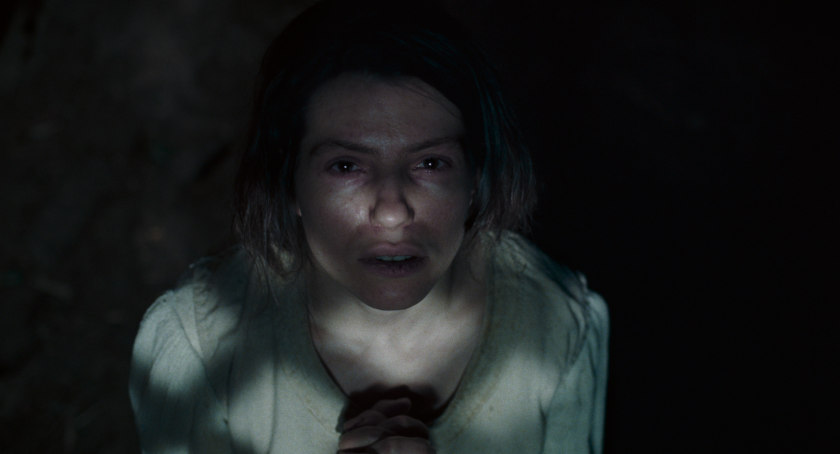Vassilis Kroustallis reviews Veronika Franz & Severin Fiala's 'The Devil's Bath'.
Directors Veronika Franz & Severin Fiala have made one of the most disturbing (if eloquent and powerful) films of this year's Berlinale (produced by Ulrich Seidl). 'The Devil's Bath' moves the cinematic terrain into upper Austria in 1750. Here a harsh farm life expects its women to do the house chores and fend for food at the same time, along with the men. No wonder that the first shot we see of the film is of a woman taking her crying baby calmly in her breasts, and throwing it out in the river to die; before going to the priest to confess and receive her beheading punishment.
Research has shown that women in the German-speaking world who wanted to commit suicide preferred to do murder instead. Suicide has never been condoned by the Church ('The Devil's Bath' shows a man who won't get buried, but his corpse is left out in the open). Murder, on the other hand, became an alternative that suited the religious beliefs, since it carried the promise of confession and afterlife forgiveness. So, most women who wanted to die murder their children instead (thought to be pure and clear of sin, ready to go to Paradise).
The religious and oversensitive Agnes (Anja Plaschg) knows nothing of these stories, even though the initial incident she experiences (the body of the beheaded murderess is still a shrine of sorts) moves her immensely. She gets married to Wolff (David Scheid), a man with no sexual interest in her; she also has to live in an isolated part of the countryside -with her mother-in-law (Maria Hofstätter) making amends for what Agnes cannot accomplish. Agnes has an instinctive fear of her new residing place; this will only get increased by her thwarted desire to become a mother (which Wolff will never care to meet). It will be no longer before her situation deteriorates.
Veronika Franz & Severin Fiala set the whole story moving equally between the inside and the outside, essentially playing with the film's genre (helped with the sparing but eerie music by Soap&Skin); this works both in an inviting and disorienting way, creating the expectation of folk horror that is never found -and essentially stripping the film of much of its overt gravitas. That said, the production design (Andreas Donhauser & Renate Martin) imposes life in the open that never sets you free -and there are scenes indelibly built into a spectator's brain.
Anja Plaschg is the soul of the film, moving from the role of a young and loving bride to a person who loves butterflies to a person in need of help (and no one to get her). Plaschg is the one to investigate the complete spectrum from naivety to psychological disturbance and is brave to keep that momentum alive -even when her scenes seem repetitive. This is a brave performance that anchors the central character and the film as eloquently and truthfully as ever.
'The Devil's Bath' is a standard phrase for mental illness, yet the film's ending offers a more literal version of that phrase, in which a community participates in a similar event. While Franz & Fiala's film is mostly the agony of one person, 'The Devil's Bath' shines mostly in its community scenes: marriage, death, and group work are admirably shown (and set) in shots that belie a sense of life even in despair. The film's narrative trajectory (in 121 minutes) runs too long to sustain its central claim (and a same-sex love interest remains too underused). Whatever its fragilities, though, 'The Devil's Bath' is an experience that cuts through the mellow phrasing of 'melancholy' to show the physical consequences of a condition that torments if maltreated. And regarding the question of whether the society of that era could have a better answer to Agnes' condition, 'The Devil's Bath' seems to be negative -without judging its proponents. Still, there is a glimpse of either hope (or renewed terror, depending on your viewpoint) in a small girl's ending song. The film is categorically visceral, and agonizing, sometimes leaving its narrative edges unattended, but accounts for a singular, overwhelming experience.
Vassilis Kroustallis
'The Devil's Bath' world premiered at the 74th Berlin Film Festival (competition)

